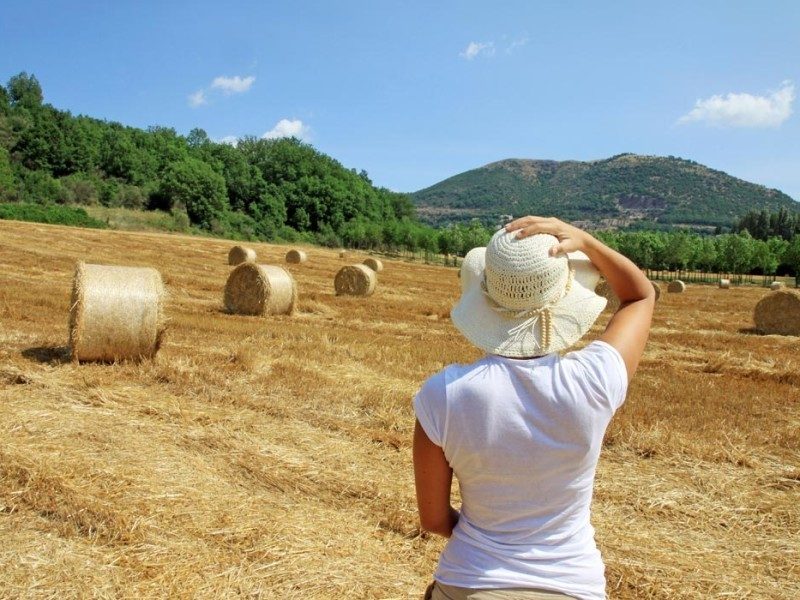What’s it like for country lesbian mothers?
Perhaps it’s easy to romanticize what it’s like to raise a family in a country town. Life is is more idyllic, safe and supportive in towns or villages supposedly. Everyone knows everyone and this means that your community will be there to help you when you need it. When you work and live in a small town it’s also easier and quicker to travel to and from work. This means that parents can spend more time with their children. Access to child care and playgroups is easier because there aren’t long waiting lists that you sometimes find in cities. Plus, country folk are always ready and willing to help each other out… right?
Unpicking the stereotypes
One study explored what it is really like for lesbian mothers to have and raise children in the country. They investigated the experiences of lesbian mothers in rural areas.
The researchers explored whether it was harder for same-sex mothers to keep their family lives private when living in the country. They examined how lesbian mothers went about having children. They also examined whether being out in the country meant more discrimination and hostility.
Importantly, they also explored the experiences of the children. They looked at how out their children were and they examined their experiences of living in the country with a lesbian mom or two moms.
The researchers did all of this through an online survey based in the US. A total of 414 women participated in the survey. The majority who answered the survey identified as being a lesbian mother. About one in ten identified as being bisexual. Approximately 5% said they were queer and a very small minority identified as being “non-heterosexual”.
What did they find when it came to having children?
In both city and country areas, most lesbian mothers had children through artificial insemination. The next most popular method was adoption. Lesbian mothers were more likely to adopt children when they lived in a city. In this survey, the percentage of country lesbian mothers who used intercourse to start a family was higher than the percentage of those who used intercourse when living in a city.
How out were the lesbian mothers?
The country lesbian mothers and those from the city reported being out to the same degree. However, the country lesbian mothers reported higher levels of discrimination from strangers, from people in the helping professions and from people in the service industry.
How out were the children?
Even though the mothers were out to the same degree, the children in the country were less likely to be out about their parents’ sexual orientation. The children were less out to their peers and neighbors.
What does this mean for lesbian mothers and their children?
It’s hard to make generalizations from this study. However, from this study it seems as though lesbian mothers in the country face similar challenges to those living in cities, but perhaps they may experience more discrimination. This may especially be the case when liaising with staff from various services, including health care services, and in relation to these survey respondents, the mothers in the country also experienced discrimination from people that they didn’t know. So, in general this study shows that these country moms generally had a tougher experience when it came to being out to strangers (both in relation to professional strangers and in relation to general strangers from the community).
The children also reported tougher experiences when it came to being out. Perhaps this was due to a lack of wider support from their local community. Perhaps the children living in the country may have a greater need to protect themselves as compared to children living in cities. In truth, the reasons for this remain unknown, it might even be that in the cities children are able to find other like-minded children and this helps them feel safe and able to be more open about their family.
Despite all of these challenges, the lesbian mothers in this study reported behaviors that showed great resilience to cope. Plus, despite the tougher circumstances, they were able to provide nurturing and supportive environments for their children.
So in summary, even though it’s not helpful to talk about stereotypes and there are clear limitations with online survey research, based on this survey it seems as though the idea that everyone knows everyone in country towns and they support each other may not always be true when it comes to lesbian mothers and their children. However, of course there are clear exceptions to this. For example, at Pink Families we know lesbians that are living in the country that are really well-connected to their local community. Personal experiences aside, what is clear from this survey is that we need more research to understand experiences of LGBTI families and individuals that live in country areas.
References
Puckett JA. Horne SG. Levitt HM. Reeves T. Out in the Country: Rural Sexual Minority Mothers. J Lesbian Stud. 2011;15(2):176-86.


